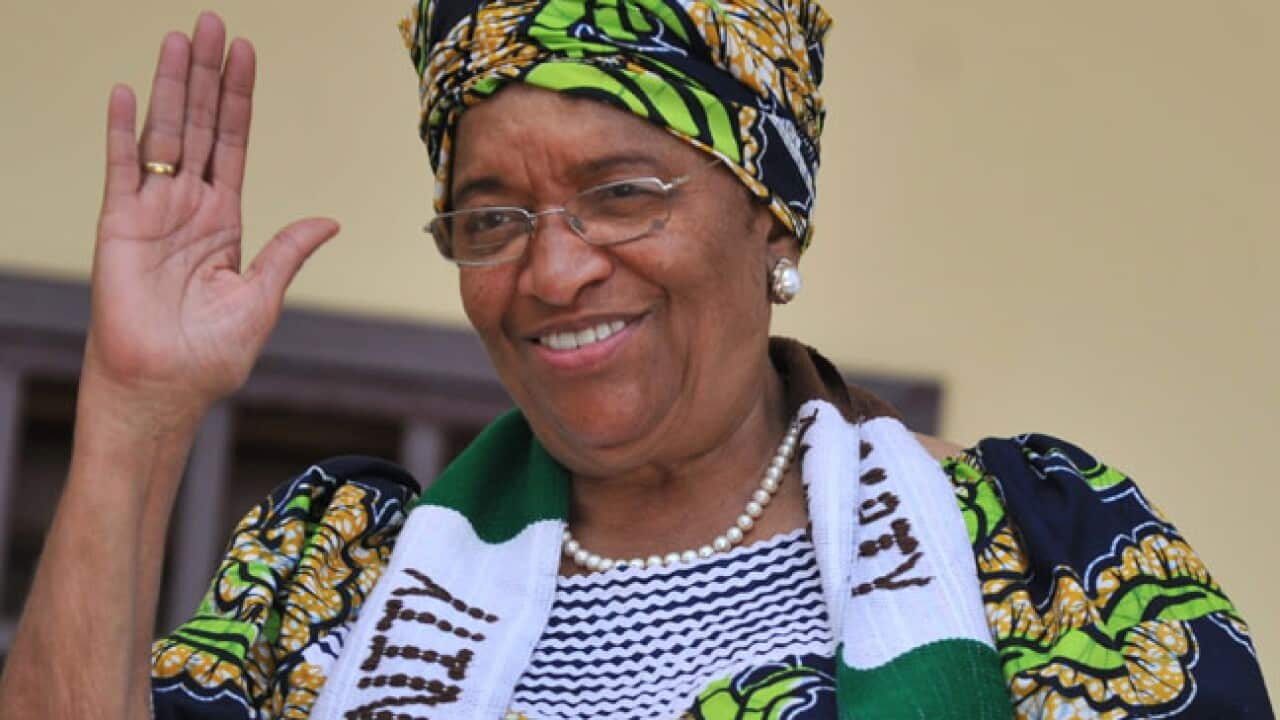Liberian President Ellen Johnson Sirleaf received a much-need boost to her hopes of winning a second term with the award of the prestigious Nobel Peace Prize Friday, just days before voting.
Tuesday's election is seen as a litmus test of Liberia's fragile post-war democracy, amid security concerns over weapons and mercenaries circulating in the country.
Sirleaf was awarded a share of the Nobel Peace Prize, together with fellow Liberian Leymah Gbowee and Yemen's Arab Spring activist Tawakkul Karman, all three praised for their championing of women's rights.
The Nobel Committee paid tribute to Sirleaf for her contribution "to securing peace in Liberia, to promoting economic and social development, and to strengthening the position of women."
Much is at stake in the presidential and legislative polls as Liberia seeks to shake off its anguished past and become self-sufficient enough to no longer need the support of an 8,000 strong UN peacekeeping mission (UNMIL).
Regional security forces are on high alert for potential instability after recent post-poll conflict in neighbouring Ivory Coast saw armed fighters flooding into the country, hiding in the dense rainforest on the border.
"We don't know what their intentions are, it could be they want to hand in their weapons, it could be they want to create trouble in relation to the elections," Ellen Margrethe Loej, the special representative of UN chief Ban Ki-moon in Liberia, told AFP in a telephone interview.
"It is a very volatile place and it has to be monitored closely," she said, adding that UNMIL and the UN mission in Ivory Coast UNOCI had boosted security on the long, porous border.
Campaigning has been largely peaceful, but episodes of political intimidation led Sirleaf to warn in August that any violence could spark a slide back into civil conflict.
Sirleaf, who made history in 2005 when she became Africa's first elected female president, is facing a tough battle for re-election despite being a darling of the international community.
The 72-year-old grandmother is credited with significant progress in social development, slowly bringing water and electricity back to the capital and charming foreign investors and creditors who wrote off billions of dollars in debt.
The economy has picked up and massive investments have been made in iron ore, palm oil and oil exploration.
However, having started from zero after successive civil wars between 1989 and 2003 known for drugged-up child soldiers and terrifying rebel factions which left some 250,000 dead, Sirleaf faces much criticism at home.
Chief amongst these is impunity for those who committed rights violations during the wars and a lack of reconciliation in a nation with a dizzying array of ethnic rivalries which still turn deadly from time to time.
She has also failed to implement the recommendations of a South African-styled Truth and Reconciliation Commission report which named her on a list of people who should be banned from public office for 30 years for backing warlord-turned-president Charles Taylor.
Massive unemployment pinned at about 80 percent, poverty, corruption and an "inadequate, corrupt and abusive" police and justice system are still major challenges to the country, Amnesty International reported in May.
Sirleaf's main rival is Harvard-trained lawyer Winston Tubman, 70, nephew of Liberia's longest serving president William Tubman, who has the crowd-pulling football superstar George Weah as his running partner.
The Liberty party's Charles Brumskine is also a popular contender.
Another colourful figure is warlord-turned-senator Prince Johnson who famously executed president Samuel Doe in 1990, shortly after the war began, and retains strong support in Nimba county.
Some 1.8 million Liberians have registered to vote in the election, which threatens to be a logistical headache in the middle of the rainy season in a country which has no tarred roads outside the capital Monrovia.
The National Elections Commission says on its website it has hired 86 trucks, 298 pick-ups, 194 motorbikes, 132 canoes and 1,944 porters to help ferry electoral materials to various polling places across the country.
Liberia is Africa's oldest independent state, and was founded by freed American slaves in 1847.

